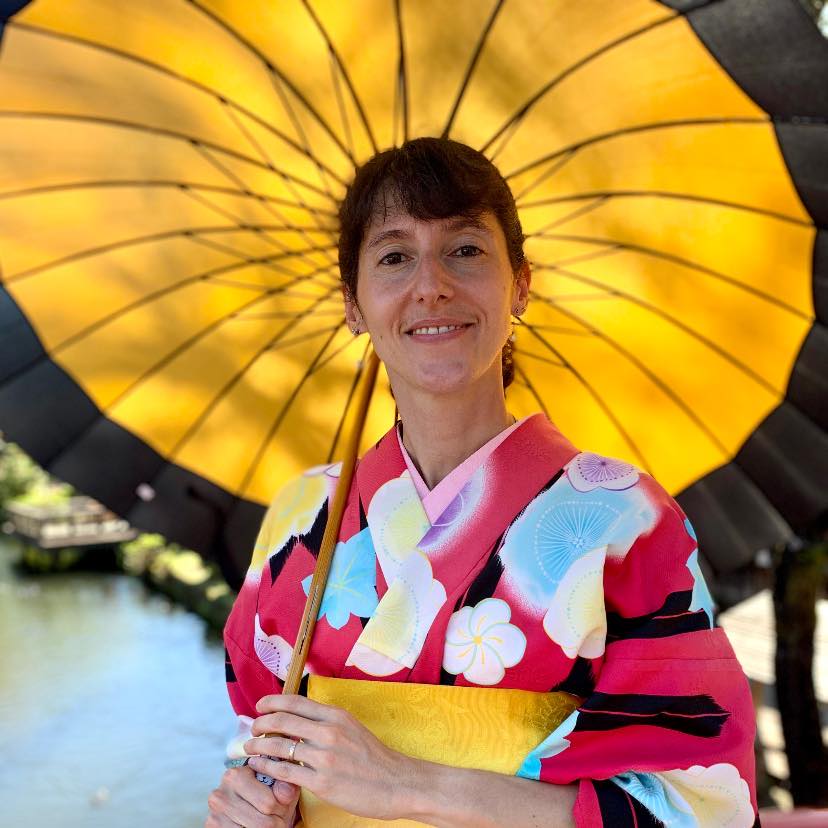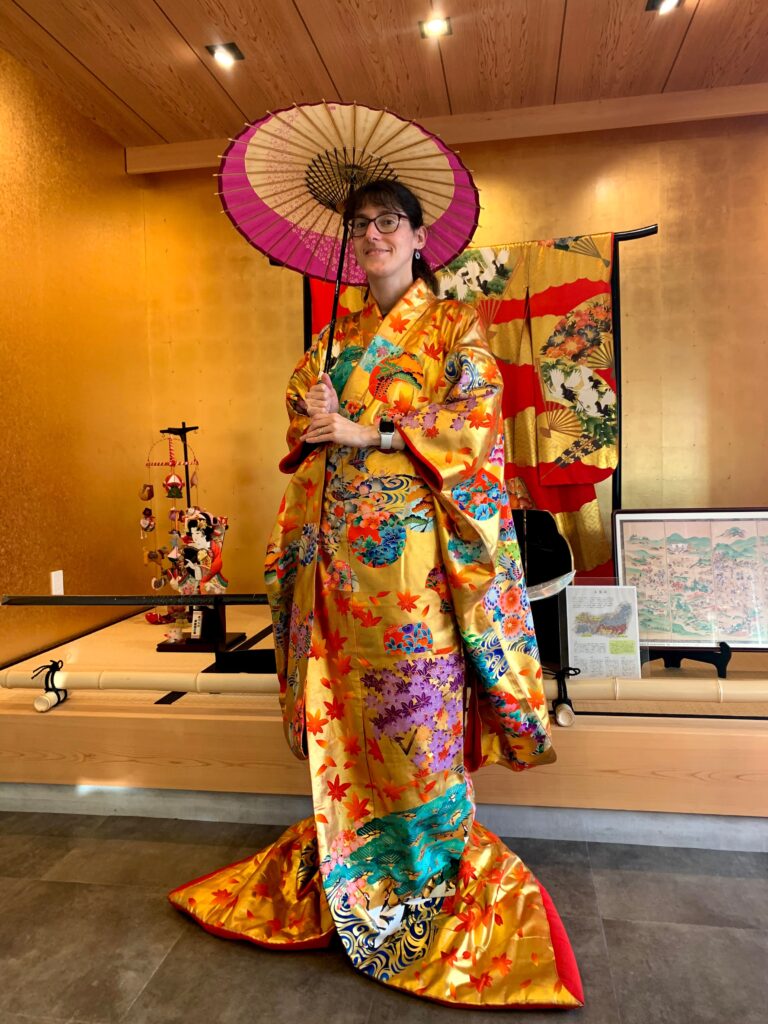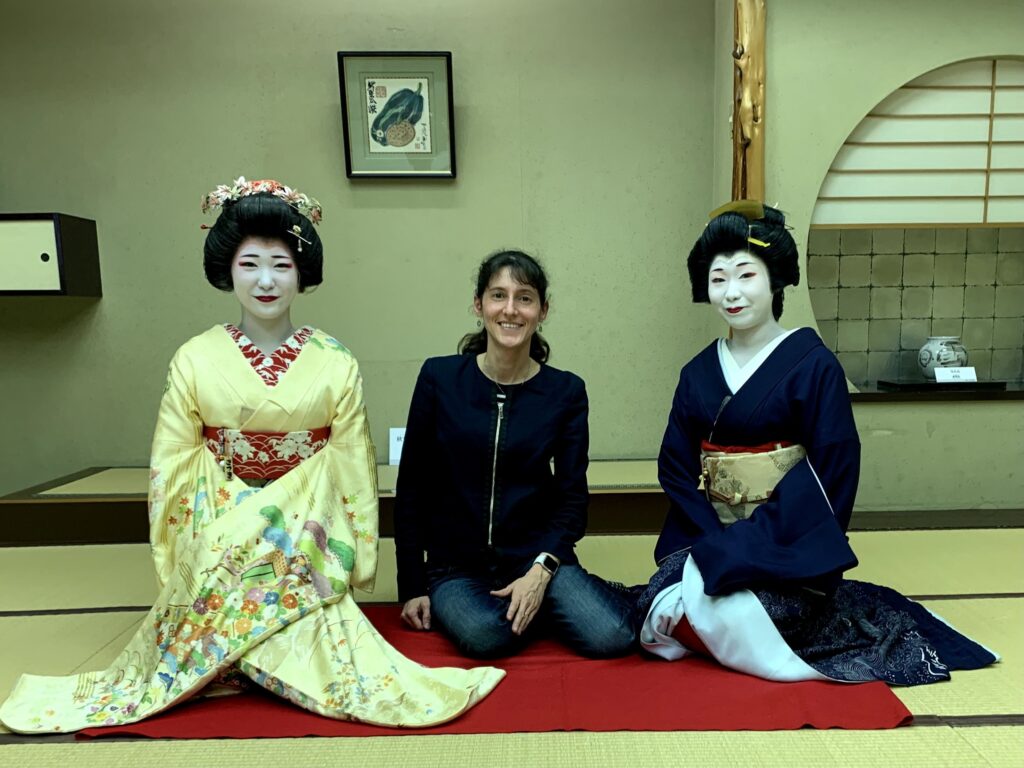
FEBRUARY 2022 (VOL.172)


Were you hesitant to relocate to Japan?
The opportunity in Japan came about by chance. We had traveled a lot, even to several Asian countries, but I had never been to Japan. Without really knowing this country at the time, I sensed the richness and delicacy of this culture, and I did not hesitate to accept the adventure.
,
Do you like living in Nagoya?
Nagoya is often shunned from sightseeing tours, but it’s an endearing city that has many landmarks and fascinating museums. Nagoya and Aichi Prefecture have an interesting history. As the birthplace of samurai heroes, Aichi has a long tradition of samurai and owns many castles. In addition, Nagoya has a long industrial heritage. Several museums and showrooms tell the story of Toyota, which has its headquarters and plants around Nagoya. Although Nagoya is a big city, there are vast parks that are as many green lungs. And finally, Nagoya remains a conservative city, attached to traditions, which gives the image of a Japan “in the raw”.
Which other places in Japan would you recommend foreigners to visit?
Apart from Tokyo and its world-famous monuments, I would absolutely recommend the unique atmosphere and the breathtaking charm of Kyoto. I am particularly touched by religious sites cradled by spirituality, and by the exceptional syncretism between Buddhism and Shinto, to be seen for instance in Fushimi Inari Shrine, Nikko, Miyajima… Also, my stays in the historic village of Shirakawa-go and in the mountainous Hida region in Gifu Prefecture gave me a lasting memory. There, I appreciate the traditional architecture, the richness of craftsmanship, the liveliness of inherited traditions, and the ancestral lifestyle. And if you have more time, don’t hesitate to discover the National Parks and volcanoes in Hokkaido.

What parts of Japanese culture would you recommend that foreign people try to experience?
It seems to me that it is difficult to understand Japanese culture without experiencing the way of life: gastronomy, tea ceremony, onsen bathing, performing arts… You can see live performances during matsuri festivals, in theaters for representations of kabuki, or in restaurants for geisha shows. Don’t hesitate, away from tourist circuits, to push the doors of izakayas, and konbini, the convenience stores open 24 hours a day. I think it’s also a way to see part of the daily lifestyle in Japan.
V
What are your favorite Japanese dishes?
I love warm udon noodles in a dashi broth, a dish that warms you up during the winter. Okonomiyaki, prepared in different styles depending on whether it comes from Osaka or Hiroshima. I love the convivial tasting of dishes cooked on a teppanyaki iron plate, and shabu-shabu, cooked in a “nabe” cooking pot on the table. It is a very nice experience that goes far beyond the tasting of dishes: it’s about sharing time together. I like to appreciate the complementarity of flavors and textures, the beauty of the presentations, the delicacy of the gestures and ceremonies around the meals. Gastronomy is an art of living, and appreciating Japanese gastronomy is a bit like admiring art.
V
Outside gastronomy, what do you appreciate most about Japanese culture?
I love the tradition of onsen and rotenburo bathing, and the symbols of purification that go with it. The culture and rituals of hot springs are found in both Buddhist roots and Shinto thoughts. Japanese culture is subject to seasonality. The people’s admiration for the cherry blossoms (hanami) and autumnal colors (momijigari) show their awareness of the precariousness of existence and their sense of poetry. These moments are shared, and these festive events linked to nature testify to a strong sense of community. Day to day, I like the calm and infinite politeness of the Japanese people, their way of considering relationships with others in sovereign respect. The result is often a great calm, a soothing silence, an absolute serenity. I enjoy the feeling of harmony in society, and between humans and nature. Everyone respects the public space, and cleanliness is everywhere. The fear of embarrassing others and the culture of apologies seem to me to be the foundations of courtesy, respect, and well-being together. It generates a harmony and a quality of life that I have found in very few countries.
V
V
V
V




